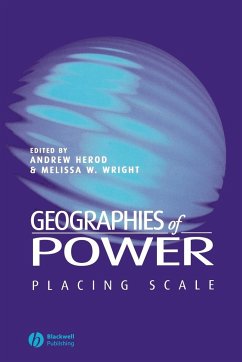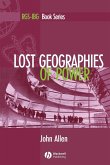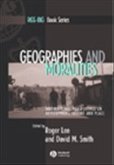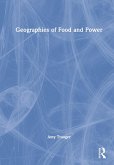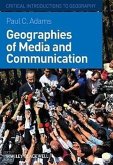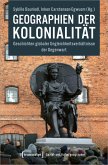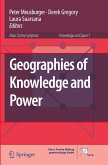Following the bombing of the World Trade Center on September 11, 2001, terrorism has joined economic restructuring, climate change, environmental degradation, and the AIDS pandemic as another issue warranting 'global' attention. The contributors to this book explore the nexus of power and space behind this rescaling of contemporary social, economic, and political life. The book opens with an introductory essay by the editors, outlining some of the main themes that have arisen in discussions about geographical scale to date. The contributors then consider in more detail key questions about how our world is scaled, how we think about such scaling, and how social actors - whether terrorists, environmentalists, or corporate executives - go about scaling their activities in ways that allow them to exercise power or deny it to others. This timely book will stimulate readers to find new ways to define the terms and spaces of political struggle open to them.
"Anyone who has grown weary of the shallow and circularglobalization debate, and the political fatalism that it breeds,should read this book. Pushing beyond the conception ofglobalization as a force of nature, the contributors to this volumeask a series of fresh and provocative questions about geographicalscale, its social relations, and its political construction. Butrather than simply asking the scale question, Power, Politics,and Geography explores the answers. It is the best collectionyet on the theory and praxis of geographical scale." JamiePeck, Professor of Geography and Sociology, University ofWisconsin-Madison
This exciting book levers open a space for a politics thatregards space as a living thing rather than a dead backdrop. Indoing so, it challenges a whole series of preconceptions about whatpolitics is or might be, and begins to formulate means of eatingaway at the foundations of concepts like globalization that sooften are used by the powerful to peddle one world fits allsolutions." Professor Nigel Thrift, University ofBristol
"The book sets out to be an intervention in, and make acontribution to, a growing literature on questions of scale,rescaling, and politics of scale [...] this book is a welcomeaddition to what remains a very fertile and promising debate"Erik Swyngedouw, Environment and Planning
"Herod and Wright's book is well organized andcoherent ... [Geographies of Power: Placing Scale]provides a useful overview of the new conceptualizations ofgeographical scale that are being developed by radicalgeographers."
American Journal of Sociology
This exciting book levers open a space for a politics thatregards space as a living thing rather than a dead backdrop. Indoing so, it challenges a whole series of preconceptions about whatpolitics is or might be, and begins to formulate means of eatingaway at the foundations of concepts like globalization that sooften are used by the powerful to peddle one world fits allsolutions." Professor Nigel Thrift, University ofBristol
"The book sets out to be an intervention in, and make acontribution to, a growing literature on questions of scale,rescaling, and politics of scale [...] this book is a welcomeaddition to what remains a very fertile and promising debate"Erik Swyngedouw, Environment and Planning
"Herod and Wright's book is well organized andcoherent ... [Geographies of Power: Placing Scale]provides a useful overview of the new conceptualizations ofgeographical scale that are being developed by radicalgeographers."
American Journal of Sociology

